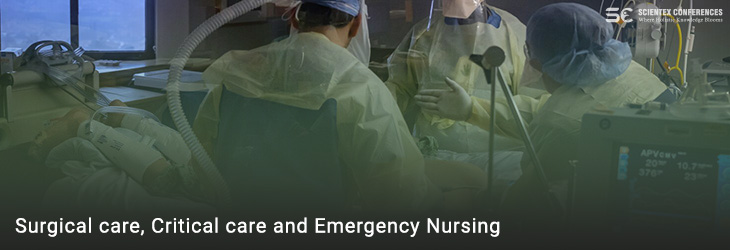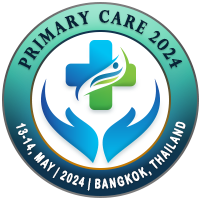Track: Surgical Care, Critical Care, and Emergency Nursing

Sub-Track:
· Moral distress among nurses in Surgical units
· Emergency Nursing-Care Patient Satisfaction Scale
· Deep brain stimulation for Parkinson’s disease
· Primary healthcare and Health Emergencies
· Biopsy and its side effects after surgery
· Emergency, Urgent, Scheduled, and Elective types of Surgery
· Primary Health Care Nursing
· Surgical Site Infections & Antibiotics
· General Surgery Diseases & Treatments
Scientific Highlights
- Public Healthcare and Management
- Roles Of Primary Care in COVID-19 Pandemic
- Emergency Medicine and Treatment Procedures
- Seasonal Allergies & Primary Care treatments
- Hospitality and Healthcare Management
- Primary Care Fertility treatments for Infertility
- Gynecology and Obstetrics
- Physical and Mental Health Care
- Global & Public Health Initiatives
- Primary care Oncology
- Primary Care Cardiology
- Primary Care Urology
- Quality in Primary Care and Epidemiology
- Infectious Diseases and Public Health
- Surgical Care, Critical Care, and Emergency Nursing
- Primary Care advancements in Diabetes and Obesity
- Primary Care Advances in Anaesthesiology
- Pediatrics and Nurse practitioners
- Geriatric care in Public Health
- Primary Health Care and Family Medicine
- Drug Addiction and Public Health Awareness Treatments
- Digital Health Care and Treatments
- Modern world and Health Impacts
- Reproductive and Sexual Health
- Primary Care Ophthalmology
- Primary care Dentistry

